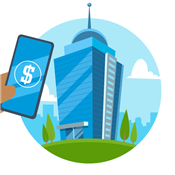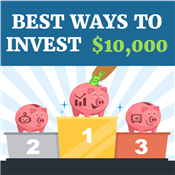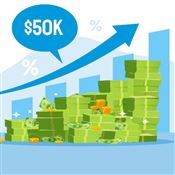FarmTogether Review
Want steady returns even when stocks are volatile? If so, consider farmland investing with FarmTogether. Discover the pros and cons in this review.
 | |||
Invest in US Farmland | |||
Overall Score | 3.3 | ||
Annual Fee | 3.5 | ||
Minimum Deposit | 3.0 | ||
Ease of Use | 3.5 | ||
Pros and Cons
- Able to choose investments
- Low investment minimum
- Low fees
- Accredited investors only
- Low liquidity
- Some risks with asset class
Bottom Line
Invest in farmland with low fees and low minimum deposits
Did you know farmland investing has an annual average return of 10.74% over the last three decades?
With farmland investment platforms like FarmTogether, you can get in on those yields, while helping to hedge against inflation and unwanted volatility.
In this review, learn how farmland investing works with FarmTogether, what it costs, and more. Plus, see how it compares to platforms like AcreTrader and FarmFundr.
- What is FarmTogether?
- How Does FarmTogether Work?
- Pros and Cons
- How Much Does FarmTogether Cost?
- Is FarmTogether a Good Investment?
- FarmTogether Alternatives
What is FarmTogether?
Founded in 2017, FarmTogether is a farmland investment manager offering accredited investors the ability to invest in unparalleled farmland opportunities across the U.S.
Their all-in-one platform facilitates access to farmland through a variety of channels, including crowdfunded farmland offerings, 1031 exchange, sole ownership bespoke offerings, and their Sustainable Farmland Fund.
The platform is run by a team of professionals with decades of collective experience in food, agriculture, and farmland investing, demonstrated by $1.2B+ of collective deployed capital. Founder Artem Milinchuk was previously the VP of Operations for Full Harvest Technologies, a B2B platform for buying and selling surplus produce.
FarmTogether is run by an experienced team and offers a more affordable way to add diversified farmland exposure to your portfolio.
How Does FarmTogether Work?
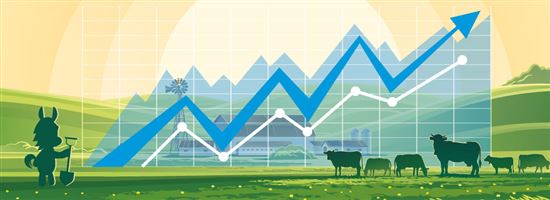 |
FarmTogether's crowdfunding platform works similarly to other types of real estate crowdfunding. Here's their process:[1]
- Through their proprietary sourcing technology and strategic partnerships, their team reviews a mix of on-market and off-market opportunities across the United States. Roughly only 2% of all deals that enter their pipeline are eventually offered on their platform.
- If the property meets their list of investment criteria (e.g., type of crop, property location and valuation, the operator's experience and capabilities), they'll negotiate the terms and then list it on their platform.
- Investors can then browse the available properties and their investment profiles (e.g., target IRR, cash yield, holding period, and how much capital investors have already committed to the deal), review due diligence materials, and sign legal documents, seamlessly online.
- Required minimums start at $15,000.[2] This is generally low enough to allow you to diversify across a few different properties depending on the size of your allocation.
- After you make an investment, the day-to-day crop maintenance and selling of the harvest are all handled by FarmTogether and their contracted partners.
- Investors can earn returns in 2 ways: income and appreciation.
(1) Income generated through rental payments via lease agreements or direct management contracts, and revenue generated by farming operations.
(2) proceeds from the eventual sale of the property at the end of the investment holding period, assuming the land rises in value.The size and frequency of distributions depend on your investment allocation and negotiated lease payments.
The FarmTogether platform supports accounts for individual and corporate entities and self-directed IRAs.
Explore Investment Opportunities
Invest in US Farmland with $15,000 Minimum Investment
What are the Pros and Cons?
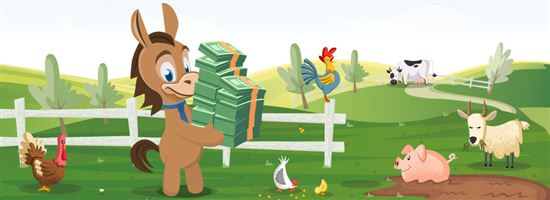 |
On the fence about FarmTogether? Review these pros and cons before signing up.
Pros
- Freedom to choose your investment: Unlike other platforms that assign you an investment, you have the ability to choose which properties you want to invest in through FarmTogether's crowdfunding product.
- Historically reliable asset class: You're investing in a tangible asset class with intrinsic value and strong historical returns. From 1992-2021, farmland saw average annual returns of 10.74%, compared to just 8.46% for the S&P 500. These returns are even more impressive on a risk-adjusted basis.
- Strong returns: Crowdfunded farmland aims to bring offerings that yield 6-13% target net IRR and a 2-9% target cash yield.[4]
- Low investment minimums compared to other real estate : FarmTogether's minimum of $15K is much lower than other platforms that require as much as $250K.
- Low fees: Fees are low (1% - 5%) relative to most private real estate investments that can charge as much as 8% - 10%.
Cons
- Only available to accredited investors: While the minimum investment is low, the requirements to be an accredited investor are still intangible for many.
- Low liquidity: Your money is "locked up" for 8-10 years or more.
- Asset class has some risks: These risks include unpredictability of nature, weather, pests, and crop prices.
Diversify Your Investment Portfolio
Invest in US Farmland with $15,000 Minimum Investment
How Much Does FarmTogether Cost?
It's free to sign up for the FarmTogether platform. You won't owe any fees until you actually make an investment. Those fees vary and are unique to each property. In general, here's what you can expect in fees:
Transaction fee
- For permanent crop deals, investors pay a one-time admin fee deal closing equal to 2% of the deal's project basis.
- For row crop deals, FarmTogether charges a one-time fee equal to 1% of the property's purchase price at closing.
Management fee
- For permanent crop deals, FarmTogether is also paid an annual fixed management fee of 1-2%, calculated as a percentage of the project basis, and a 5% net operating income fee.
- For row crop deals, investors pay 20% of gross lease revenue annually.
It's important to read the offering documents carefully, though, as each deal has its own fee arrangements, and some may even include profit sharing for the managers.
Investing through the platform is safe in the sense that you are not investing in FarmTogether but rather you own a portion of the actual farmland (usually structured as an LLC), which protects your investment in the event that FarmTogether fails. FarmTogether is not SIPC insured because that only applies to brokerages that deal with publicly traded securities, like stocks and bonds.
Crowdfunded Farmland Offerings
- Investment offerings are available to accredited investors starting at a minimum of $15,000.
- Diverse assets spanning different crops, geographies, and deal structures - all curated to fit a range of portfolio needs.
- Hold periods typically range from 8 - 12 years
- Simple and low fees.
- Seamless online investment process.
Is FarmTogether a Good Investment?
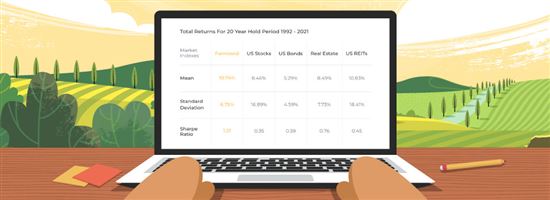 |
No investment comes with zero risk, but farmland has historically offered a very attractive risk/reward profile and can act as a great diversifier for a balanced portfolio of stocks and bonds.
According to their website, farmland:
- Yielded an average annual return of about 10.74% over the 30 years (leading up to 2021).
- Has historically low volatility compared to the stock market, driven by the inelastic demand for food.
- Has low correlation to both traditional and alternative asset classes.
- Didn't post a single year of negative returns over this time period.
- Has consistently provided returns more than double the inflation rate since before 1992, providing a welcome inflation hedge.
The fees on the FarmTogether platform are also very reasonable compared to other private investments. Plus, people will always need to eat, so there's little risk of a large, sustained downturn in farmland values.
Overall, the risk/reward profile of FarmTogether is strong.
Sustainable Farmland Fund
- Farmland sourced for accredited investors who prefer diversified exposure to a portfolio of institutional-grade farmland through a single allocation.
- Private evergreen structure with quarterly liquidity after initial two-year lock-up.
- Target net annualized return of 8-10% and a net annual target distribution of 4-6%.
- Investment minimum starts at $100,000 for Class A and $5,000,000 for Class I.
Other Ways to Invest in U.S. Farmland or Real Estate
While we think FarmTogether is a great addition to most portfolios, there are other competing real estate platforms for both farmland and commercial and residential buildings.
Depending on the size of your portfolio and the type of real estate you want, you may want to consider one of these competitors.
FarmTogether vs. AcreTrader
AcreTrader is a close competitor to FarmTogether as they also offer direct investments in individual U.S. farmland properties that you can choose from on their platform.
The two platforms are very similar in terms of minimum investment size, holding period, returns, and fees. AcreTrader charges an annual management fee of 0.75% of the value of your investment in addition to closing fees that are charged for each deal, which average about 2%.[5]
AcreTrader plans to open a secondary marketplace on their platform, subject to regulatory and other approvals, where investors can sell their AcreTrader investments before the holding period is complete if they want the cash sooner. This is a nice feature as it creates liquidity and flexibility in an investment that is otherwise very illiquid and long-term.
The primary difference between the two platforms is crop types. AcreTrader is primarily focused on row crops, whereas FarmTogether additionally offers high-value permanent crops such as almonds or apples.
Overall, we think FarmTogether and AcreTrader both offer an attractive platform for farmland investing. If you are looking to invest in this space, consider opening an account on both (opening an account is free) so you are able to browse deals on both platforms and take advantage of the most attractive properties.
AcreTrader is legit. They claim that their review process is so strict that they only accept ~1% of the properties they research. Similar to FarmTogether, they also hold each of their properties in a separate LLC (which the actual investors own). So your investments are protected even if AcreTrader fails.
FarmTogether vs Fundrise
Fundrise is another popular private real estate investing platform. In 2015, they launched the eREIT, which is an ETF that holds a large diversified mix of real estate investments from different sectors (commercial and residential).
They offer three different eREITs, each one tailored to a specific mix of dividend income vs. longer-term capital appreciation. You can invest across their portfolios with as little as $10.[6]
Besides their low investment minimums, Fundrise also offers better diversification and more liquidity than you can get with FarmTogether.
Fundrise will let you withdraw funds early (after just 90 days, if you need) for a small redemption fee. And their fees are attractive as well - with just a total of 1% annual fees applying to most accounts.[7]
A downside of Fundrise is that they don't offer farmland on their platform, so this makes FarmTogether an obvious choice between the two if you know farmland is where you want to invest.
Invest in Real Estate with $10+
- Only $10 minimum investment
- Get a diversified portfolio of real estate projects across the US
- Open to all investors
FarmTogether vs. FarmFundr
FarmFundr is another close competitor of FarmTogether. FarmFundr is a smaller platform founded by a 4th generation California farmer and currently only offers a handful of local properties. Like FarmTogether, they also only accept accredited investors.
Features that add to FarmFundr's small, "local" vibe include a free box of produce from your farm each year, and even an open invitation to come to visit and spend the weekend at the farm.
FarmFundr also has shorter holding periods, which vary from 1 to 7 years, and higher target returns of 13 to 15%. While these target returns are higher than what FarmTogether advertises, it's important to note that FarmFundr has a limited track record.
They currently only have three projects in crops that command higher prices (pistachios and almonds), and these prices can also vary a lot over time, affecting investors' returns.
We also like that FarmFundr takes an equity stake in each of their properties, ensuring that they have skin in the game. Despite their small size and limited history, we think their high target returns are enough of a reason to consider FarmFundr.
Bottom line: Should You Invest in FarmTogether?
With carefully curated farmland, competitive returns, and years of industry experience, FarmTogether has a lot going for it.
Plus, investing in farmland is a smart move. Because it has historically little correlation to stocks, farmland investments can cushion your broader portfolio during a bear market.
The diversified investor of the past might have left farmland out of their portfolio because of the high investment requirement, the constant upkeep, and the need for planning out every aspect of a harvest.
But being a farmland investor in 2022 has never been easier thanks to crowdfunding platforms like FarmTogether.
References
- ^ FarmTogether. How it Works, Retrieved 11/11/2022
- ^ FarmTogether. Investing General: What is the minimum investment size?, Retrieved 11/11/22
- ^ SEC. Accredited Investor, Retrieved 11/11/2022
- ^ FarmTogether. FarmTogether Product Matrix, Retrieved 11/11/22
- ^ AcreTrader. Offerings: What are the costs associated with using AcreTrader?, Retrieved 11/11/2022
- ^ Fundrise. Minimum Initial Investment, Retrieved 11/11/2022
- ^ Fundrise. What are Fundrise's fees?, Retrieved 11/11/2022

Invest in Real Estate with $10+
- Only $10 minimum investment
- Get a diversified portfolio of real estate projects across the US
- Open to all investors
Invest in Real Estate with $100
- Short-term real estate investments lasting just 6-18 months
- Open to non-accredited investors
- Low fees
Invest in Rental Homes with $100+
Browse rental home investments for free. No bank account required
Write to Andrew Fitzgerald at feedback@creditdonkey.com. Follow us on Twitter and Facebook for our latest posts.
Note: This website is made possible through financial relationships with some of the products and services mentioned on this site. We may receive compensation if you shop through links in our content. You do not have to use our links, but you help support CreditDonkey if you do.
Fundrise, LLC ("Fundrise") compensates CreditDonkey Inc for new leads. CreditDonkey Inc is not an investment client of Fundrise.
|
|
|
Compare:



